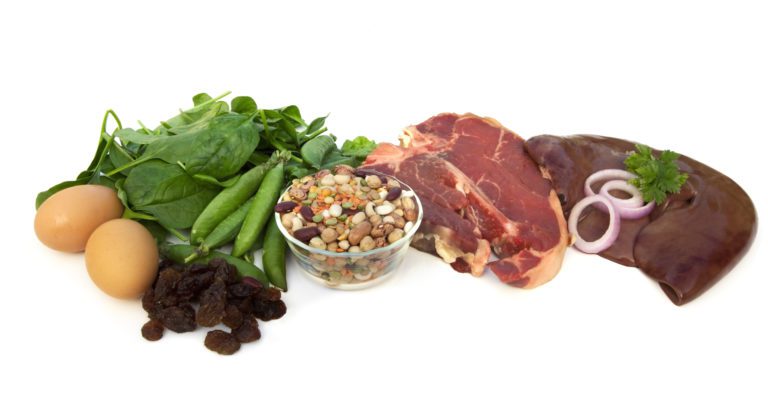Also read: Bleeding in Pregnancy
Very shortly after starting to receive prenatal care you will more than likely have blood drawn to determine your blood count. You may find out you have anemia, a medical condition in which, simply put, you don’t have enough healthy red blood cells. During pregnancy, your blood volume increases by up to 50% to support your growing baby, and you’re more vulnerable to anemia if your diet doesn’t have enough iron, folate, or Vitamin B-12.
What Causes Anemia?
The most common cause of anemia in pregnancy is dietary deficiencies. When your body doesn’t have the nutrients, it needs to make healthy red blood cells, it won’t have enough hemoglobin (the substance inside red blood cells that helps them carry oxygen). This can affect your baby’s growth and make childbirth more dangerous for you. Other less common causes of anemia include heavy bleeding, and the body’s own destruction of its red blood cells.
What are Symptoms of Anemia?
Symptoms can vary from person to person but in general you may experience extreme fatigue, cold hands and feet, weakness, pale skin, headaches, dizziness, chest pain, rapid heartbeat, shortness of breath, brittle nails, and or PICA (craving to eat things that aren’t food, such as ice, starch, or dirt).
How do you Manage Anemia or Low Iron?
Some anemia can be prevented or cured with a healthy diet. If that’s thecase for you, here are some ideas of great foods you can pack into your diet:
- Iron: Found in meat, beans, lentils, and dark-green leafy vegetables
- Folate (folic acid): Found in fruits, dark-green leafy vegetables, green peas, kidney beans, cheese, eggs,fish, almonds, and peanuts. It can also be found in vitamin enriched grain products such as bread, cereal, pasta, and rice
- Vitamin B12: Found in meat, dairy products, eggs, and fortified cereals
- Vitamin C: Found in citrus fruits, peppers, broccoli, tomatoes, melons, and strawberries. Foods with vitamin C help your body to absorb iron
If you find that you may need a little boost in addition to an iron-rich diet, you and your provider can discuss to options best for you! Some of the. options you may want to discuss are:
- Iron pills: Including capsules and extended-release tablets. Your provider will specify how much to take each day
- Liquid iron: If your provider has prescribed iron pills and you find that constipation or nausea is a problem, discuss the possibility of taking iron in liquid form with over-the-counter products such as Liquid Geritol or Floradix
- Iron infusion: Intravenous iron may replenish iron stores more quickly and efficiently than oral iron therapy
- Erythropoietin therapy: Erythropoietin is a red blood cell protecting hormone produced by the kidney. This therapy can increase your red blood cell mass without any ill effects for mom or baby
Pregnancy is an exciting journey, and you may encounter a few surprises along the way. The good news with anemia is that you have options, and there are steps you can actively take each day to improve your and your baby’s health.
YOU MAY ALSO LIKE: Healthy Summer Treats and Tips for Expectant and New Moms






Comments are closed.